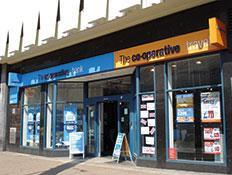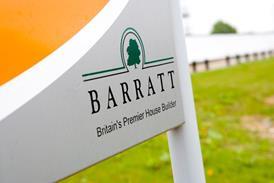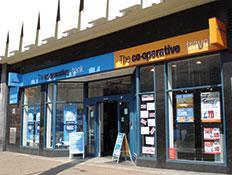The UK’s eight largest lenders are braced for the outcome, next week, of the Bank of England’s stringent stress tests to gauge how prepared they are for another financial crisis.

The tests are tougher than those undertaken by the European Central Bank (ECB) and include more lenders. And some of the UK’s banks - most notably the Co-op - are readying themselves for bad news.
Property Week examines what the implications are for the property industry.
What are the stress tests?
The Bank of England conducted the tests - the results of which will be announced on Tuesday (16 December) - to assess how well the UK’s eight biggest lenders would cope with a sharp rise in interest rates, coupled with a severe recession.
The scenario envisages a jump in interest rates of 4% by the end of 2015, alongside a fall in house prices of a third; the unemployment rate hitting double digits; and the stock market collapsing by almost a third.
How does this differ from the ECBs stress tests published in October?
The Bank of England tests differ from the ECB tests in two important respects. First, they include more UK banks. The ECB looked into the health of the UK’s four biggest lenders: RBS, Lloyds, HSBC and Barclays - whereas the BoE tests examine the UK’s eight largest lenders (see box) and therefore includes the troubled Co-operative Bank.
Secondly, the BoE tests are tougher. The ECB tests were based on a smaller 21.2% drop in house prices over a longer period of three years and didn’t consider changes to interest rates. The BoE tests are also the first in Europe to factor in monetary policy.
How are the banks likely to fare?
None of the four UK banks failed the ECB tests — but Lloyds and RBS did not exactly pass with flying colours. Lloyds was found to have a ‘core tier-1 capital ratio’ — which is a key measure of its ability to absorb losses — of 6.2%, only just above the 5.5% minimum. Lloyds and RBS could therefore struggle in the BoE tests given how much tougher they are than the ECB tests.
“Unless they can come up with more evidence that they have improved their capital positions, they could be borderline,” says CBRE’s head of UK and EMEA research Neil Blake.
The Co-op Bank, which recently failed its own internal stress test, is likely to come out worst — its chief executive Niall Booker has already warned it will be no surprise if the bank fails to reach the desired capital ratios.
What are the implications for real estate?
Any lenders that do fail will have to improve their capital ratios either by running down risky assets, tapping shareholders for more funds or restricting their lending activity.
From a property point of view, the UK lenders, unlike some of their continental counterparts, have already been active in selling off non-performing property loan portfolios, in an effort to improve the health of their balance sheets.
For RBS and Lloyds, who are well on the way to exiting their non-performing loan exposure, the tests are unlikely to change much in terms of their sales activity. But at the Co-op Bank it is a different story. The tests have already pushed it to accelerate portfolio sales. It cancelled this week’s shareholder meeting on bonuses and said it was considering accelerating “the run-down of non-core assets, which are particularly exposed to stress”.
Lending may also be affected. “It could impinge on the banks’ ability to make new loans — although they are still not lending anything like what they were,” says Blake.
In short, it is likely be some time before the new normal resembles anything like the old again.
The eight lenders facing the BOE stress tests
- Barclays
- Lloyds
- RBS
- HSBC
- Co-op
- Santander
- Nationwide
- Standard Chartered






























No comments yet